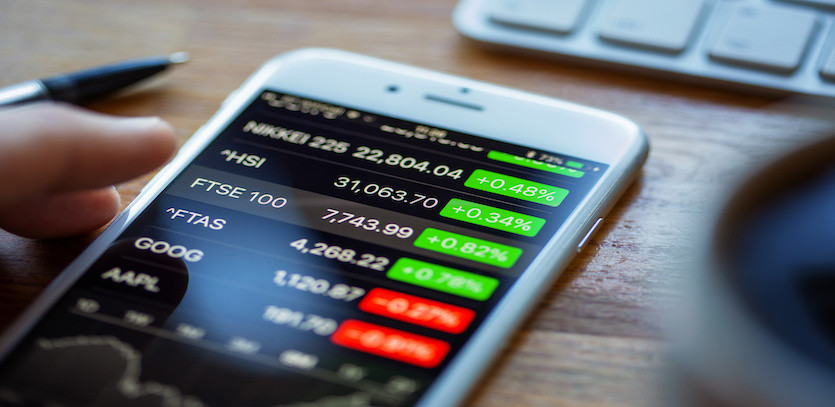Introduction to the FTSE 100
The Financial Times-Stock Exchange 100 Share Index, colloquially known as the "Footsie," is an influential market index that monitors the performance of the top 100 public companies listed on the London Stock Exchange (LSE) by market capitalization. The name "FTSE" comes from its creators, the Financial Times and the London Stock Exchange. The FTSE 100 plays a significant role in global finance by offering a snapshot of the health of the UK stock market and the overall British economy. This comprehensive guide provides an in-depth look into the FTSE 100, its calculation, and ways to engage in trading through IG.
A Closer Look at the FTSE 100
Currently under the guardianship of the London Stock Exchange Group, the FTSE 100 has a similar significance to that of the Dow Jones Industrial Average and the S&P 500 in the United States, serving as a barometer of the broader market performance.
The FTSE 100's valuation derives from the aggregate market capitalization of the companies that constitute the index. This value is inherently dynamic, mirroring the fluctuations in the individual share prices of the indexed companies throughout the trading day.
The FTSE 100's movements are evaluated against the market close of the previous trading day. This index's value is calculated continuously during the LSE’s trading hours, from 8:00 AM to 4:30 PM. A rise or fall in the FTSE 100's value indicates a corresponding increase or decrease in the valuation of the largest UK-listed companies.
Understanding the Composition of the FTSE 100
Introduced in 1984, the FTSE 100 has seen its composition evolve over the years to accurately reflect market shifts, including mergers and acquisitions, and companies entering or exiting the market. Being listed on the LSE is a prerequisite for a company to be part of the FTSE 100, although the company itself need not be British.
Many FTSE 100 companies are foreign-based or have significant overseas operations, making the value of the pound an influential factor. For instance, a weaker pound can increase the pound-based value of a dollar-earning company. Conversely, a strengthening pound can reduce earnings for companies with substantial operations in Europe when converted back into pounds.
To ensure the FTSE 100 consistently represents the most capitalized companies, the FTSE conducts quarterly reviews. As of June 21, 2023, the index includes heavyweight corporations such as AstraZeneca, Shell, HSBC, Unilever, and BP.
The Larger FTSE Family: Other Indices
In addition to the flagship FTSE 100, the FTSE also creates and publishes a plethora of other indices, each tracking a specific range of securities and financial instruments. Some other prominent UK-based FTSE indices include the FTSE 250 (comprising the next 250 largest companies beyond the FTSE 100) and the FTSE All-Share, which is a composite index combining the FTSE 100, FTSE 250, and the FTSE SmallCap.
How to Invest in the FTSE 100
Despite being an index, the FTSE 100 does offer investment opportunities, albeit indirectly. Investors looking to gain exposure to the FTSE 100 can invest in exchange-traded funds (ETFs) that track the performance and invest in the companies listed in this index. Notably, the iShares Core FTSE 100 UCITS ETF and the Vanguard FTSE 100 UCITS ETF are two popular options for investors.
The Inner Workings of the FTSE 100
The FTSE 100 is a compilation of the 100 largest companies (by market cap) listed on the LSE. The index’s value is computed by weighing all the LSE-listed stocks based on their respective market capitalizations. The more a company is worth, the more weight it carries within the FTSE 100 and hence, the more significant its effect on the index’s price movements.
As of June 2023, some key constituents of the FTSE 100 include global behemoths such as Royal Dutch Shell, GlaxoSmithKline, Unilever, and Barclays.
Can Americans Invest in the FTSE 100?
Absolutely! American investors can take part in the FTSE 100 by investing in ETFs that track and invest in the index's companies. Options for this include the iShares Core FTSE 100 UCITS, Vanguard FTSE 100 UCITS, and HSBC FTSE 100 UCITS ETFs.
The American Counterpart of the FTSE 100
The S&P 500 is often considered the American equivalent of the FTSE 100. While the former tracks 500 companies and the latter only 100, both are viewed as primary indexes in their respective countries, serving as crucial indicators of the broader market trends.
In Conclusion
The FTSE 100 index, representing the largest 100 companies listed on the LSE by market cap, is an essential indicator of the broader financial market. It functions similarly to the DJIA and S&P 500 in the United States and houses some of the world's largest companies, such as BP and Shell. Therefore, it commands close attention from investors across the globe.





